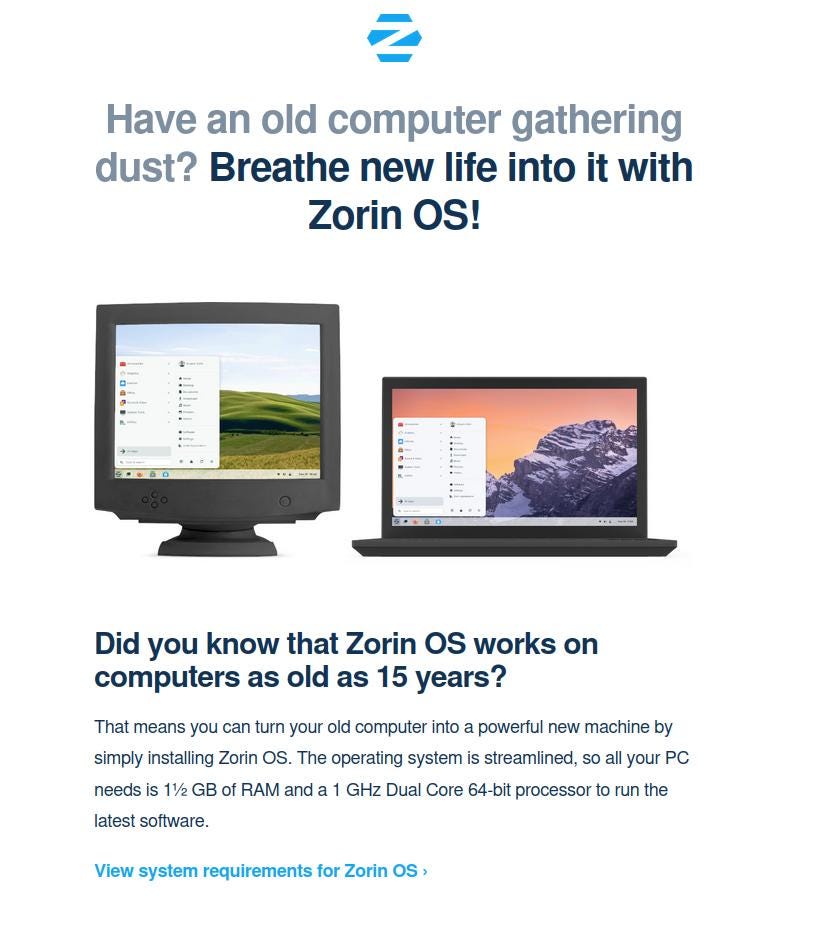
It Began With A Bang
Recently my washing machine broke. One minute it was whirring away, the next there was a banging and clattering like a thunderstorm in the kitchen. When I opened the door I found white shavings over everything, and the drum wouldn’t turn.
A repairman came. He said the whole drum and everything in it spins on a single spindle, and nowadays they’re made of plastic, not metal. So, as happens eventually, the plastic snapped. Then the drum acted like a giant cheese grater and started tearing into the interior of the machine.
Question: why do manufacturers use flimsy plastic for one of the most crucial and hard-working parts of the washing machine, when it can break so easily?
Answer: because it will break. Then you’ll go and buy another washing machine. And add to the manufacturer’s profits.
At which point you might think you can at least get that bit replaced?
But no: I was told manufacturers design against that. In fact, not only have they created the machines so it is impossible to replace that pin, you also can’t replace the drum. Nowadays they use sealed units meaning that pretty much the whole interior of the washing machine has to be replaced, which can cost more than buying a new one (because they keep the prices of the replacement parts high).
Welcome to the world of inbuilt obsolescence, also known as designed or planned obsolescence.
Widespread Malpractice
Once you become aware of this you spot its manifestation everywhere.
An old lamp stopped working. It wasn’t the bulb at fault, so I opened the plug and changed the fuse. Voila, it fixed it, taking only seconds and costing pennies. Being able to change parts easily saves replacing things unnecessarily, at both financial and environmental environment cost. But on my new devices the plugs are sealed units to prevent you changing the fuse, forcing you to buy something new rather than easily fix it.
Clothes are another example, where people throw away items just because they are a bit worn, or have a hole in, or lost a button. In most cases they could be easily repaired or patched up. In fact, there’s pleasure to be had from sitting by a fire in winter, or in the garden sunlight in summer, sewing, maybe chatting to friends, or listening to music. It’s relaxing and meditative. The trend for fast fashion makes things even worse, with people throwing things away in order to jump onto the next artificially created trend. Ethical Consumer has a good article on “What is fast fashion and why is it a problem?” We need to change the culture, to become more responsible. Why should it be seen as a bad thing if we make items last longer, rather than waste money and resources on brand new? Clothes are there to keep us warm and protect us, and maybe to tie in to our identity since we all have favourite items and colours. Buying for “fashion” is a swindle, since it only means you (temporarily) look like everyone else. We need to care less about how we look, and more about what’s inside people, the inner virtues that make someone worth knowing.
Top Tip 1: have categories of clothes. Things in good condition for best, for formal situations. When they become a bit worn they drop to the category that’s less formal, such as going to the shops or a walk. Then, after a long life, they drop to the final category: comfy house clothes, gardening or decorating items. Every item has a history with you, memories, and they stay with you every time you wear the much-loved item. Oh, and never buy anything with branding on it: why should you pay to advertise vacuous consumerism?
Top Tip 2: over time, laptops and desktop computers seem to get slower and slower, until people cave in and buy a new one. However, a lot of the slowdown is actually just Windows clogging up with digital crud and forced updates that don’t work properly on the hardware. But there is an easy fix when this happens! Just erase Windows and replace it with Linux. A distro like Linux Mint is easy to install, free, and a much better operating system than Windows. (I should know, I stitched from Windows to Linux about five years ago.) Last year my mother’s Windows 10 laptop had been getting slower and buggier. I wiped Windows and put Linux Mint (Cinnamon) on. It then ran faster than when we first bought it! It only took a few hours and completely revitalised the hardware. No financial cost or waste of resources.

It’s The Culture
Western materialism and rampant consumption culture drives so much evil.
Inequalities (the rich own production and are the ones who profit).
Advertising (billions of pounds a year spent on persuading you to buy more).
Tighter control of money systems (to enable it all, and the push to get rid of physical currency).
Higher populations (= more consumers = more profits).
Famine, war, and environmental destruction (all caused by pursuit of riches, both now, and as repercussions from a history of slavery and colonization).
Endless consumption leads to endless resource use, plus huge amounts of waste. The rush to maximise profits leads companies to cut corners, with the cheapest packaging and manufacturing, and then the environmental nightmare of shipping products around the globe even when they could have been made locally. Everything becomes a commodity.
They want you to buy more, so make things break, needing replacing. They use aspirational propaganda, making it a goal to work harder, to earn more, to spend more, to make the rich richer, yet giving you shallower lives filled with crap when you realise product X (shirt, perfume, car, holiday, phone, shoes etc) didn’t make you happy. Our culture focusses on conspicuous consumption as a measure of self-worth. We’re brainwashed out of seeing that 1% of the population of the planet hoard 99% of the wealth, land and resources; the other 99% of people scrap over the 1% dribs and drabs.
It reminds me of the wonderful computer game Little Inferno. It’s a satire on the rule of corporations, consumerism, and capitalism. We burn up the world to keep ourselves warm and amused, even though we destroy everything in the process and create a world where people feel they need endless consumerism to keep their mind from the mess we've made of everything.
Our culture could be based on so much more, such as developing virtues and skills over consumption; of sharing rather than possession; of producing rather than consumption; of unity rather than divisions (which is where artificial global markets and countries come from). We could all grow and make things, that we could trade with friends and neighbours. We could change so that no one sees other life as our property, but as our equals in being able to live lives in peace. Traditional, spiritual and religious definitions of wealth shouldn’t be pushed aside by materialism.
So inbuilt obsolescence is not just one issue, and tweaking at the margins won’t fix everything. We need radical restructuring across every part of human culture and society. But dealing with the issue is at least a start.
Top Tip 3: Ethical Consumer is a wonderful guide to which companies and products are doing good, and which to avoid, along with why (environmental, political, who owns them and so on). It's one of the key ways to make sure that when you spend money, you're supporting the good guys, not the bad guys. The ethical scores are broken down into categories so you can focus on the ones that are more important to you (e.g. avoiding Israeli products as part of the boycott of their apartheid politics). Ethical Consumer offers gift subscriptions which includes an Olive Tree Sponsorship.
Fix It
Firstly, we need to buy less. Only buy what you really need.
Then, everything needs to be repairable. It should be part of the design.
I often fantasise about a better world. One idea is that we force manufacturers to make things last, and to be responsible for repair costs before then. For example, maybe the manufacturers would have to repair items for free for the first ten years, and provide replacement parts at postage-cost-only for the next ten. Believe me, they will make things last then, and also make them easy to repair. Yes, items might cost more up front, but it will save a fortune over time without needing to keep replacing and repairing things, and will make an even bigger difference to the environment: both in raw resources unnecessarily used to make replacement products, and in disposal of waste at the end (note that only a tiny percentage is in any way recycled, the rest is just dumped, often in other countries, under fake greenwashing schemes).
Local systems could help, too. Imagine if items were collected by your local council and tested. Anything that works is made available free or cheaply to anyone who wants it. If an item is not repairable or resellable, it is dismantled for parts that can be used for repairs. The parts could get listed on a local website/database, and anyone could buy them cheaply when they need that part for a repair. Suddenly repairs would be much cheaper and easier.
We need to break the cycle of endless buying, landfill and waste that comes with capitalism and consumerism. We need socialist attitudes to bring this kind of people/environment-centred approach in. We need to see through the consumerist propaganda, where advertising and entertainment enforce an awful world view. That starts with reflection, and breaking your own conditioning. Please join me.









Absolutely brilliant Karl. I started to become aware of built-in obsolescence increasingly from the 1980s. It is not surprising that this wicked, destructive practice started to take hold on us at the same time as neoliberalism began to tighten its grip on humanity. Buying new was promoted as desirable and a sign of ‘success’—the opposite seen as a sign of failure. There are growing movements and businesses that promote a circular economy, reusing and repurposing. I have been working on cleaning up my act increasingly over the years. Not too far from us there is a successful and popular charity called Moray Waste Busters. You can give them anything you don’t need or want anymore and they’d sell it on for very little. They even have electricians and other professionals working with them who fix electrical and electronic appliances and certify them so they can be sold on.
Your article is so important, especially for the younger generations, or for anyone who doesn’t know the reality we are all living in. Well done and thanks for writing this.
We need the right to repair, and the products made repairable. Thanks for posting, Karl.